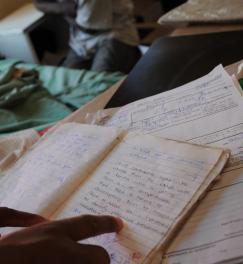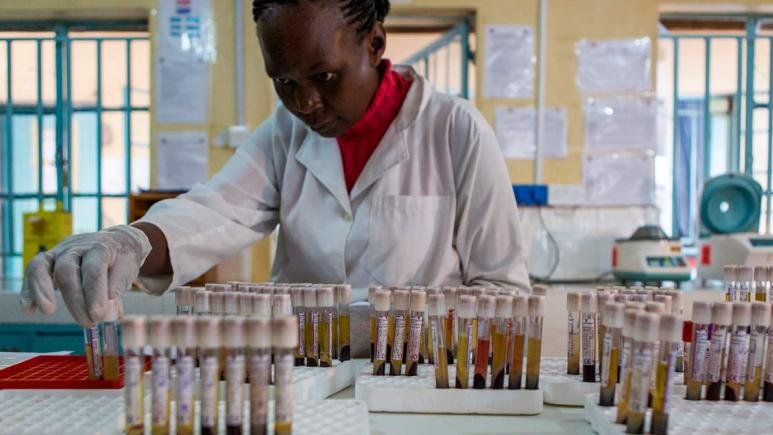HIV-status awareness study Kenya
Awareness, treatment, and reducing transmission
A cross-sectional population study in Ndhiwa sub-County, Homa Bay County, Kenya hads completed data collection. The study assesses the HIV positive status awareness, the linkage to care, the ART coverage, the viral load suppression, prevalence and incidence.
The study results will be used at individual level to inform optimal patient management.
A similar HIV survey was conducted in 2012. On the basis of those findings HIV care guidelines were improved. The results of this survey will allow Epicentre to evaluate the impact of the care currently provided.
The study in a nutshell
Despite significant major increase in the Kenyan antiretroviral treatment coverage and a reduction in mortality of AIDS-related causes since the beginning of the 2010, the HIV prevalencein in Homa Bay County is significantly higher (26%) than the national average (5.6%).
In 2102 Médecins Sans Frontières (MSF) , Epicentre and the Ministry of Health (MOH) implemented a population based survey to assess the HIV epidemic in the sub-County. The findings of the survey have helped MSF and the MoH to implement activities and adapt strategies in the sub-County. After 4 years of MSF working in the sub-County, it is expected that the implementation of the HIV activities will result in increased of HIV positive status awareness coverage, ART coverage and viral load suppression among those on ART, and in turn that this will lead to decreased transmission and consequently a reduction in HIV incidence. Therefore the same partnership is now interested in carrying out a similar survey, 6 years after the first one, as part of an evaluation of the changes in the HIV epidemic since 2012.
The study population will be composed of adults aged 15-59, residents of Ndhiwa county or visitors of the household visited.
HIV/AIDS
Find out more







